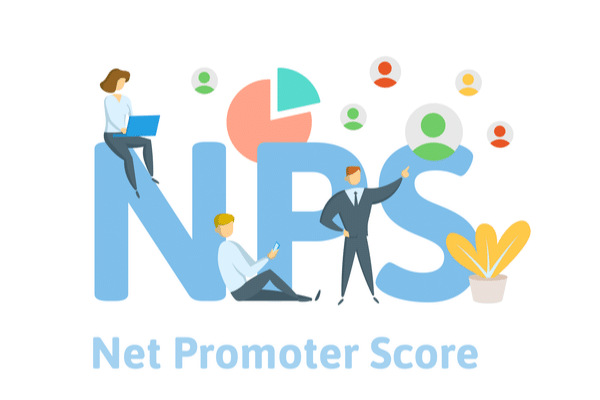A PI attorney’s role is continually evolving – but one thing will always remain the same: clients are essential. Without them, casebooks remain on shelves, and financial books stay in the red. The Net Promoter Score, or NPS, for law firms, is a KPI that you should be tracking for your firm to stay ahead of the client curve.
A key way to measure client satisfaction is with a Net Promoter Score (NPS). The NPS for law firms can help you determine how pleased a client is with your services and if they are likely to recommend your firm to other people. It’s a way to find out if you have happy, or unhappy, customers.
What is NPS?
NPS for law firms was developed in 2003 as a way of quantifying customer satisfaction. All clients are presented with an NPS survey to measure their thoughts on the customer journey with your firm. The main question asks: “on a scale of 0 to 10, how likely are you to recommend our firm to a friend or colleague?”
Depending on your primary practice areas, this question may change slightly but the general gist will remain the same; to measure customer satisfaction.
Once this question has been answered, responses are placed into three categories:
Promoters (9-10) – delighted customers who are likely to recommend your firm to others.
Passives (7-8) – impartial customers who are satisfied with your legal services but are unlikely to recommend you to others.
Detractors (6 or lower) – dissatisfied customers who are more likely to discourage other people from using your services.
How to calculate NPS?
NPS can be calculated by subtracting the percentage of detractors from the percentage of promoters.
“For example, if 43% of your clients answered 9 or 10, and 18% answered 6 or below, then the NPS for your law firm is 43-18, which is 25.”
NPS benchmarks
A good NPS is anything above 0, and scores above 30 are regarded as excellent. If your NPS falls below 0, then your firm might need to start re-evaluating existing procedures and improving client satisfaction before profits begin to dry up.
Follow-up questions
The most common way to improve your NPS data is to ask follow-up questions. This will help you pinpoint areas where you are doing well and areas that can be improved. The most common question is: why have you given us this rating? Asking clients to give reasons for their decision will provide you with lots of feedback that can be used to improve your customer service.
How can NPS help you?
A large section of the legal industry gains more clients through referrals. If this is a source of business for your firm, then calculating your NPS is a good way of deciding if you are running an efficient and client-centric firm. Knowing, tracking, and working on improving, the NPS for your law firm will help you improve your long-term business growth!
Also Read:
1) 3 Ways to Build Your Referral Strategy for Your Personal Injury Firm
2) 5 Steps to Creating a Podcast Strategy for Your Law Firm – Part 1

